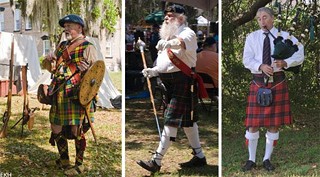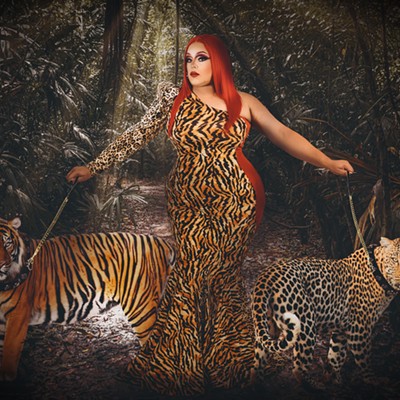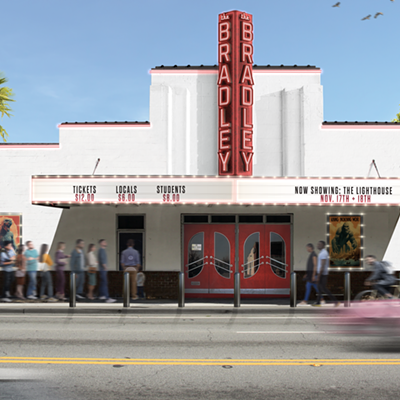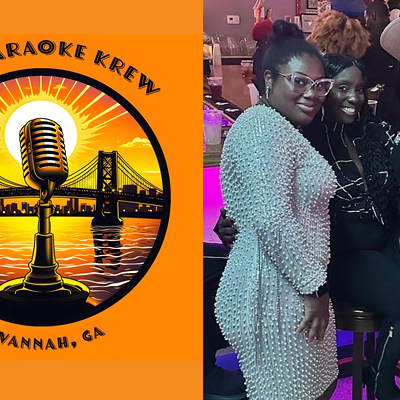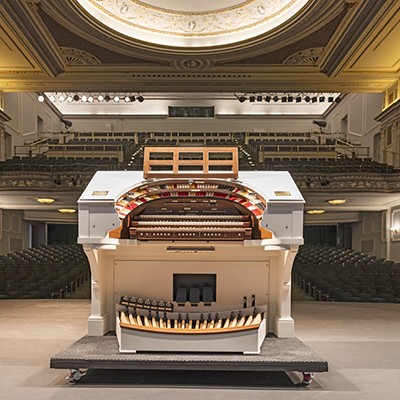Every July, more than 50,000 people attend the Highland Games and Gathering of Clans near North Carolina’s majestic Grandfather Mountain. It’s the largest celebration of Scottish history and culture in the eastern United States, and it’s been right there on the mountain since 1955.
Although evidence exists that there were Scottish games in Savannah in the 19th century, the contemporary model began in 1976. And while it’s not the massive tartan explosion that Grandfather Mountain is, it’s been getting bigger and better–attended every year. Kilt sales are up.
The 2011 games are held Saturday, May 7 on the grounds of the Bethesda School for Boys.
A centerpiece of the event is the Highland Dancing competition. Historically, dancing was employed as a way to get the Scottish armies whipped into a state of high adrenaline (hello, Braveheart). These days, nationals, jigs and hornpipes – danced by young girls – are an important (and colorful) segment of the celebration.
This year, Savannah is hosting the 2011 USIR Highland Dancing Southern Regional Championships, one of six competitions held throughout the United States annually.
Five age groups are competing, and the top three winners in each group become eligible to compete in the 2011 United States Inter–Regional Championships in Spokane, Wash.
Will there be bagpipes? Most assuredly.
Pipe and drum units and soloists from around the country compete in a judged showdown officially sanctioned by the Eastern United States Pipe Band Association.
The event ends with a “massing of the bands,” in which every musician joins together for a rousing (and loud) rendition of something traditional like “Scotland the Brave.”
The Savannah Ceili Band is set to play, along with Cynergy (Bob and Judy Williams) accompanied by fiddler Moira Nelligan.
And Alex Beaton, a.k.a. “The Scottish Balladeer,” makes a rare appearance; he’s known worldwide for almost single–handedly re–introducing traditional highlands music back into these festivals, which have long spotlighted pipes and drums, dancing competitions and, most famously, heavy athletics.
How heavy? At the Savannah Scottish games, you’ll see men and women competing in:
The caber toss. A very long and thick wooden log is thrust (via the palms) into the air so that it flips end-over-end. Successful caber–tossers get their logs straight up and down, as close to perfectly vertical as possible;
The sheaf toss. A big bag of hay (20 pounds for men, half that for women) is heaved over a 38–foot crossbar by means of a pitchfork;
The weight throw. Just what it sounds like. A hunk of steel (maximum 56 pounds for men and 28 pounds for women), with an attached handle, is heaved for distance and height (the latter is technically called Weight Over the Bar);
The hammer throw. A heavy, round metal ball is attached to a four–foot stick, whirled over the head and thrown. There are several weight classes here, too.
The games are all based in very, very old Scottish traditions. “All of them came from either the farm, the woods or the smithy’s shop,” says Neill McDonald, president of Savannah Scottish games.
“The athletes, among themselves, are called throwers. And the neat thing about them is, while they compete fiercely, they also are very supportive of the others. They’ll say ‘Hey Billy, you need to move your foot back just a little bit – you’ll get a better purchase!’ They’ll talk about it during the event, and show people how it’s done.”
This is a full–service family festival put on by dedicated students of history, with (naturally) a vendors’ market and refreshments (sample haggis if you dare!).
Also on the menu: Demonstrations by shepherding border collies; a genealogy tent and clan info tents (check your own heritage!), a tartan parade and an historical re–creation of a Scottish camp in Georgia, circa 1733. Actor Scott Hodges will play James Oglethorpe, founder of the Georgia colony, in full military dress and powdered wig.
It’s not as far from our own history as it might seem. “The Scots had a fairly strong impact on Savannah’s early years,” says McDonald. “General Oglethorpe brought Scots over to be soldiers when the Spanish were invading from Florida. The Battle of Bloody Marsh, in the Darien/Brunswick area, caused the Spanish to withdraw and not come back.
“So had it not been for the Scots, we would probably all be speaking Spanish today.”
Savannah Scottish Games
Where: Bethesda School for Boys, 9520 Ferguson Ave.
When: 9 a.m.–5 p.m. Saturday, May 7
Tickets: Adults: $10 advance, $12 at the gate; children age 11–17: $5; military (with ID): $10. Children 10 and under are free with an accompanying paid adult
Addenda: Coolers are allowed (no alcoholic beverages); blankets and lawn chairs are recommended
Info: savannahscottishgames.com

